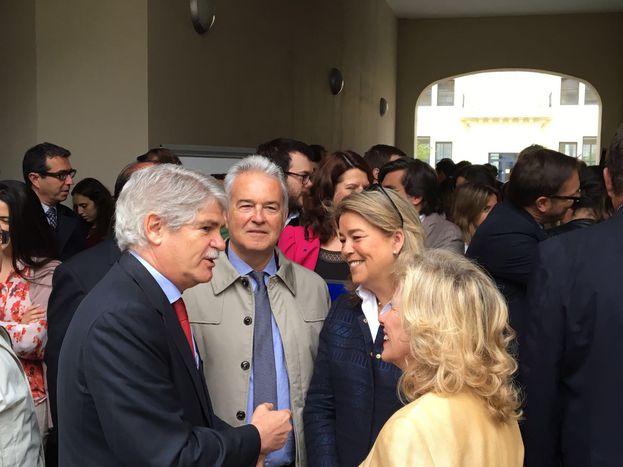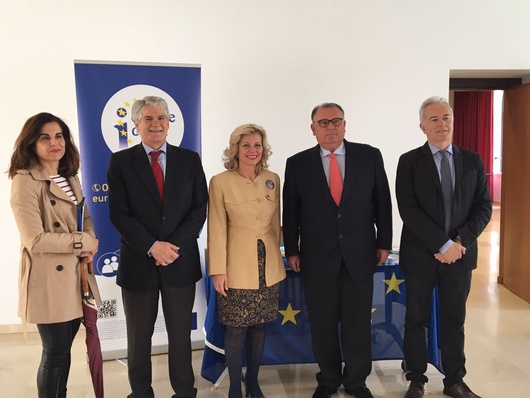
9th of May: for a more human Europe
Published on
Translation by:
Francesca TealOn Europe Day, the University of Seville organised a ceremony to look over the history of Europe. A tour through the Spanish and Andalusian contributions, the Permanent Representative of Spain to the European Union has reviewed the challenges faced by the member states.
The 9th of May 1950 marked a turning point in the history of the European continent. Robert Schuman, one of the founding fathers of the European Union, presented the Declaration which today bears his surname. In the declaration, the firm intention of working for the solidarity-based integration of European States was noted for the first time. Now it’s more necessary than ever to save the solidarity of the European Union to be able to confront the crisis which threatens to break the unity and transform the EU into a purely economic entity.
Alfonso Dastis: The Andalusian vision of Europe
The Permanent Representative of Spain to the European Union has been the person in charge of inaugurating the conference session, which the European Documentation Centre and Europe Direct have organised in commemoration of the Schuman Declaration.
A “pro-Europeanist”, whose political life has been tied to the European Union. As an Andalusian, he feels responsible about guiding the course of European integration. A course guided by the value of solidarity which leads us to a more welcoming Union which is also sensitive to the problems now knocking on the continent’s door.
 But the current crises put the moral principles that shaped the shared culture and history in danger – those which established the pillars of the European Union in 1950. And according to Dastis, the refugee crisis has been the biggest concern for Brussels and for the people as being the only reason which threatens to overthrow what he called the “great achievement” of the European Union: the Schengen area. If Schengen falls, Europe falls, and with it the rights of all the citizens to move freely through the area. Which implies a restriction on freedom of movement and therefore on cultural exchanges, which is the pillar that unites citizens from the different member states.
But the current crises put the moral principles that shaped the shared culture and history in danger – those which established the pillars of the European Union in 1950. And according to Dastis, the refugee crisis has been the biggest concern for Brussels and for the people as being the only reason which threatens to overthrow what he called the “great achievement” of the European Union: the Schengen area. If Schengen falls, Europe falls, and with it the rights of all the citizens to move freely through the area. Which implies a restriction on freedom of movement and therefore on cultural exchanges, which is the pillar that unites citizens from the different member states.
On his part, Dastis calls for an urgent solution to the refugee crisis, emphasising that matters like Brexit are “less important” if one bears in mind that they are artificial crises. Brexit in particular is a crisis which the British Conservative Party “have taken over from us” he stated.
Europe won't collapse in the crisis
Facing the economic and political crisis which is destroying Europe, a more dynamic growth is needed, one which will only be attained if Europe gets its leadership back. But Dastis doesn’t speak of a leadership, which until now carries the name of a country. The Permanent Representative has strong reasons to assume that the European leadership has name and surnames, and furthermore he thinks that lack of leadership isn’t “healthy” for the future of the Union.
Dastis speaks of a future guided by a “balanced leadership” which the European institutions can, in an integrated way, confront the challenges with. But first and foremost, he speaks of responses that show European citizens that Brussels represents them.
Translated from 9 de mayo: por una Europa más humana



